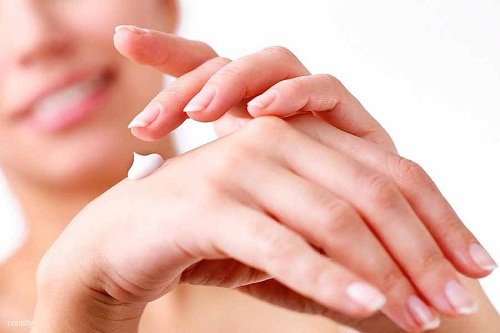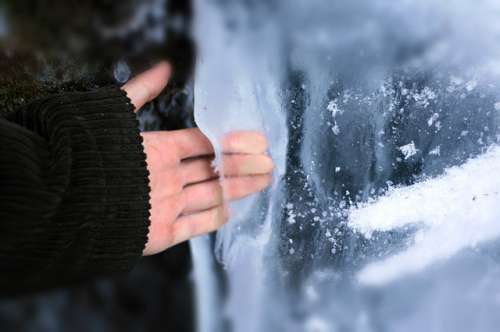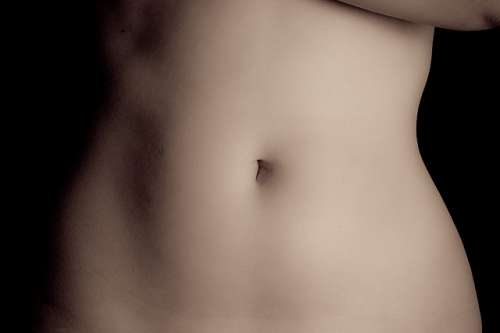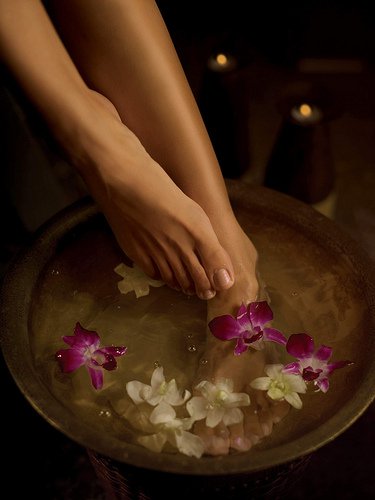Why Do We Get Cold Hands and Feet?

Are you one of those people who always have cold hands and feet, even when it’s not cold outside? Do you know why it happens? Today, we’re going to tell you about this strange phenomenon related to the digestive system. Find out how body temperatures work, and how you can regulate them naturally.
Body temperatures: why do you get cold hands and feet?
In general, some people are more sensitive to the cold and other people are more sensitive to the heat. These two types of people also react differently when they’re in a similar climate. The key is to balance your body temperature, because it’s not good to be either too hot or too cold.
Normally, the areas of your body most likely to get cold are your extremities, in other words, your hands and feet.
The internal organs that tend to get the coldest (meaning they need the most heat) are the liver and kidneys. The stomach and intestines tend to retain their heat much better.
When your body has to make an extra effort to heat up a specific area, it usually increases circulation. That can cause either more inflammation or less, as part of an effort to bring that area back to normal.
When your body does that, your circulation will go away from other parts. In this case, it’s usually your extremities. That’s why you get cold hands and feet.

The digestive system
Your digestive system, especially if you have a poor diet or eat constantly, is at risk of excess heat. You have it running almost nonstop. It’s forced to work harder, which increases gastric acid levels, and that leads to an increase in temperature.
When that happens in your stomach, it ends up making its way down to the intestines. If you touch your stomach, your skin will probably feel cool, but that’s just a symptom of the excess heat inside your body.
Learn more: Habits that Damage Your Intestines
What all this means is that constantly having cold hands and feet might be the result of excess heat in your digestive system. Besides the discomfort it brings, it’s important to try and prevent this, mainly because of the long-term joint problems it can cause.

Is it possible to rebalance your body temperature?
Of course. One quick way is to find external sources of heat for your limbs. Here are some examples:
- Taking a hot bath.
- Clothing the area with fabrics of polar fleece or wool.
- Applying heat-generating creams such as those containing ginger, cinnamon, etc.
- Massaging the areas.
- Using an electric heating pad or hot water bottle.
But keep in mind that these things can only alleviate the symptoms, not solve the problem. If you want to balance your body temperature (which will improve your overall health), you have to accelerate your digestive system.

Remove heat from the digestive system
How do you do this?
- Choose healthy foods and avoid harmful ones, like red meats and sausages, fatty cheese, fried foods, and certain sweets.
- Be careful to avoid foods that are hard to digest, like some vegetables, dairy products, etc.
- Chew your food thoroughly.
- Don’t eat large amounts of food at one time. Know when to stop before you feel too full.
- Don’t eat again until you’ve completely digested your last meal.
- Don’t eat dinner too late in the day, and don’t eat too much.
- Prevent constipation.
- If you suffer from gastric hyperacidity or heartburn, treat them with natural remedies.
- Alkalize your body.
- Try to rest a little bit after eating, before you exert your body too much.
You might be interested in: How to Cure Gastric Reflux
Water therapy
Water can also help you regulate your body temperature, but you have to do it gradually. We usually shower with warm or hot water, but little by little you should try to finish your showers with cold water. The first few times can be for just a few seconds but, over time, start to take more of your showers with cold water. You can even start to alternate between hot and cold.
It’s important not to feel cold before or after you take a shower so that there’s a bigger contrast. Once you’ve finished showered, dry yourself off well to get your body to heat itself up naturally.
Images courtesy of Taras Khimchak, Intercontinental Hong Kong, and Filip Bunkens
This text is provided for informational purposes only and does not replace consultation with a professional. If in doubt, consult your specialist.








